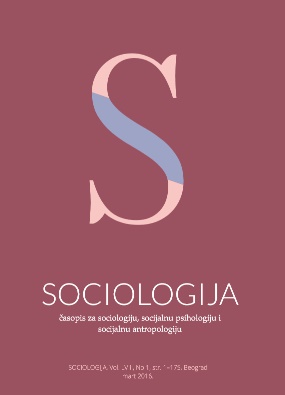POIMANJE FIZIČKOG PROSTORA U DRUŠTVENOJ TEORIJI
The conceptualization of the physical space in social theory
Opportunities for sociological analysis of spatial dimensions of a city
Author(s): Svetlana RadovićSubject(s): Social Theory, Rural and urban sociology
Published by: Sociološko naučno društvo Srbije
Keywords: absolute space; relational space; spatial turn; production of space
Summary/Abstract: This paper presents different conceptions of the physical space in social theory aiming to review the consequences that they as metatheoretical assumptions have to the treatment and position of the spatial dimensions of the city in sociological analysis. The first part presents characteristics of the absolute concept of physical space and indicates the different implications of the adoption of this concept in urban sociology. After that, the text considers features of the relational concept of physical space whose adoption enabled the spatial turn in the social science, and its adequacy to the contemporary social context of movement, permeation, interaction between people, capital, goods and cultures. The third part highlights, the importance of understanding space as the product and context of practice – of produced, and not given, for the conceptualization of physical space as an inherent quality of social space, inseparable from time and the symbolic and subjective meanings. The conclusion points to the relevance of adopting Lefebvre’s production of space concept through representations of space, spatial practices and representations of space as an analytical framework for studying spatial form of city as the overall dimensions of social life.
Journal: Sociologija
- Issue Year: 58/2016
- Issue No: 1
- Page Range: 146-164
- Page Count: 19
- Language: Serbian

